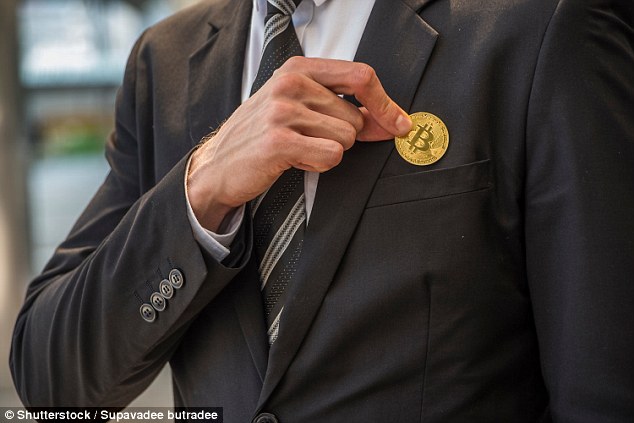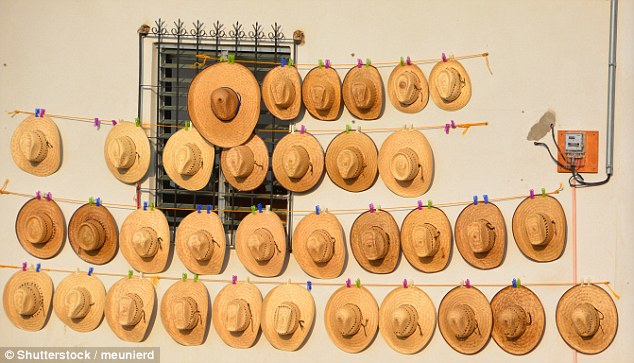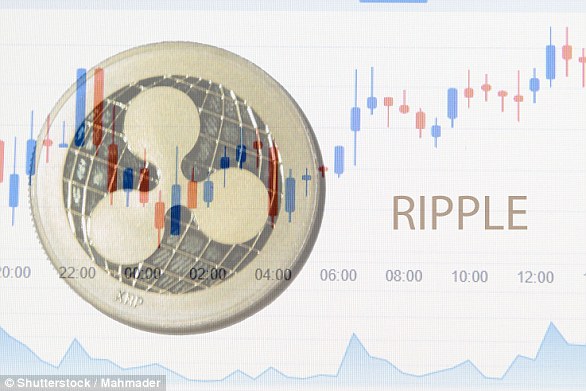Recently, This is Money received an e-mail from a reader which started: ‘You need to have a section dedicated to crypto technology and currencies.
‘This is now a market exploding with ICOs, new currencies daily, technological advancements and a market worth over $550billion.
‘The technology is the biggest technological leap since the founding of the internet.’




After some research and a raft of good reviews, he plumped for Bitstamp.Â
At the time of his investment, ripple was not really heard of, with only bitcoin and ethereum really in the mainstream domain, making it harder to get hold of.
However, it took some hoops to get involved. It took a week to get verified, which involved him sending a copy of passport to the Bitstamp HQ in Slovenia, along with a bank transfer, which meant having his Iban and Swift Code to hand.
He says that recently, a friend of his has also tried to sign up with Bitstamp, but the company is quoting five weeks to verify, thanks to a surge of interest.
He says his June investment saw ripple at $0.22 a coin, but this fell to $0.10 not long afterwards, testing his nerve at the very beginning.
Eventually it rose and he was confident to make another investment, in December, when the coin went to $0.38 a coin.
By mid-January, it raced to a record high near $4 a coin – and Alex said his account had grown to €34,000 (it’s measured in euros as it is Slovenian based) from roughly €4,000 invested.
He said on one train journey home, his account had collapsed from €34,000 to €25,000, as investors began to panic.
He believes the price went up after rumours that ripple was heading to Coinbase, one of the main crypto players, meaning more people could invest, thus driving up the price.
However, the firm issued a statement saying this wasn’t the case – and it lead to a bloodbath.
So, was it easy to cash out? Alex says it was. He sold 8,000XRP making a tidy profit and taking away his exposure. This was sold within seconds on the site to eager investors.
It has left him with 12,000XRP that he plans to keep hold of. Currently, it has ‘stabilised’ to around $1.15 a coin.
He says Bitstamp charge 0.24 per cent for buying and selling. The cost, he says, of selling, was €9 in fees. It was also warned that it would take up to three working days to arrive in his account. It took two.
We asked whether his bank had been in touch regarding any suspicious activity, giving the amounts of money being transferred and having been received overseas. He says he hasn’t.
A raft of case studies recently in the Financial Times revealed problems cashing out their profits, with some banks suspicious of where customers had received huge sums.Â
Transferring cash and passport details to Slovenia for an investment punt is extreme – but Alex says the risk has paid dividends.
CFDS
Some websites offer investors the chance to take a punt on cryptocurrencies, but not actually own any of their own.Â
Here, you buy ‘Contract For Difference’ agreements. This is where an investor and a broker agree to pay each other the difference between the price of an asset at the moment the contract is made and its later price when you decide to close it.
The Financial Conduct Authority warned against betting on the currency using CFDs in November.
They are complex financial instruments which allow novice investors to guess whether the price will go up or down.
Punters could lose up to 50 times their deposit if they get it wrong, meaning they could rapidly rack up huge debts.
The FCA said CFD traders are ‘at risk of suffering significant losses and potentially losing more than you have invested’.Â
OBSCURE COINS HARDER TO BUY
Many may believe bitcoin may have peaked – or reached a point in which they cannot make some of the astronomical gains made by early investors.
As such, they want to take a ‘punt’ on a lesser known coin. There is plenty of them.Â
This is Money recently signed up to New Zealand based website Cryptopia to see a list of what is available. It was huge.
Two that are being tipped to grow this year from a low level by a panel of four fintech leaders for price comparison website Finder in a cryptocurrency predictions survey are cardano (ADA) and stellar lumens (XLM).
They claim that cardano – a third generation digital currency – will rise by more than 8,000 per cent this year from $0.78 a coin to $68.
However, getting your mitts on the coin as a speculative punt is not as easy as it seems.Â
Hardly any of the aforementioned brokers or wallets cater for the smaller currencies, only the main players such as bitcoin.
You then find yourself on niche websites – or in our case, Cryptopia.Â
But to buy any currency on many of these types of website requires you to already own bitcoin or another major cryptocurrency.Â
Or in Alex’s case above, sending bank and passport details to Slovenia, which is a hurdle many – understandably – would not be comfortable with.
When we searched ‘how to buy cardano UK’ a step-by-step guide said we needed to download software for the wallet and own ethereum to get the coin.Â
We’re not sure how many people would be comfortable downloading software onto their computers or phones from sources they do not know. It is open to all sorts of fraudulent activity.Â
DO YOU DECLARE PROFITS TO THE TAXMAN?Â
Those who have made profits from buying and selling digital currencies may be left a little confused about whether or not they need to pay tax.
With the deadline for tax returns fast approaching, many may not know whether or not to declare it – and the HMRC guidelines are a little fuzzy.
The last time it issued guidance on the taxation of cryptocurrencies was March 2014, which feels like a lifetime ago in the world of fast moving digital currencies.
So is it an investment meaning Capital Gains Tax is payable on gains above £11,300? This is 18 per cent for basic-rate income tax payers and 28 per cent for higher-rate taxpayers.
Or should it be treated as gambling, which means profits are tax-free? Â
An HMRC spokesman says: ‘We don’t normally tax betting and gambling because it is usually not classed as trading income.Â
‘But there may be circumstances where factors such as the degree of skill and organisation would make the activity more likely to be taxable as trading income. Each case will depend on its own facts.’Â